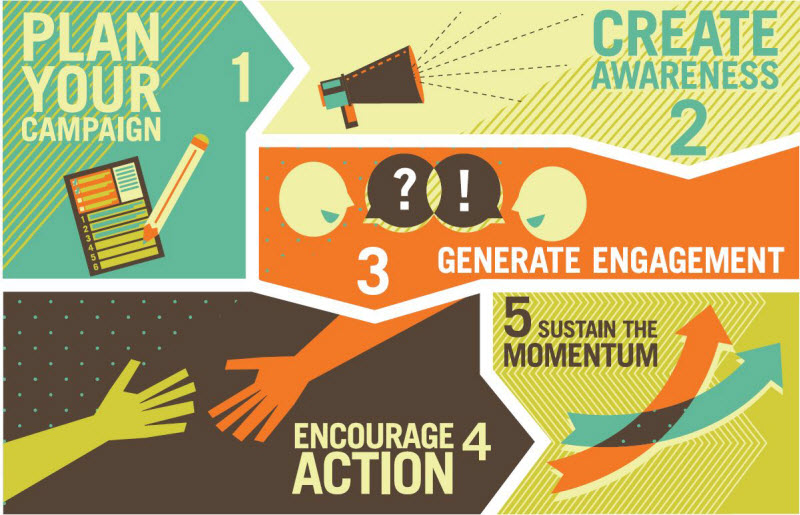Explore how politics shape healthcare and education as we approach a pivotal election year. Learn actionable steps for staying informed, engaging in advocacy, and influencing positive change in public health and wellness.
As a registered dietitian and educator, I’ve often encountered the sentiment that healthcare providers, educators, and content creators should steer clear of politics in our public platforms, especially on social media. But in an election year, when the stakes are high and the outcomes of local and national elections will directly influence healthcare policy and education systems, I believe it’s not only appropriate but necessary to engage in these discussions.
Politics shape every aspect of the work we do—from the accessibility of healthcare services to the quality of education our students receive. While I understand the desire for light-hearted content, ignoring the potential impacts of political decisions is a disservice to our communities. Shedding light on these critical issues can help you navigate the complexities of our healthcare and education systems, while empowering you to make informed decisions that can lead to positive change.
Why We Can’t Ignore Politics
When we think about the role of politics in our lives, we might instinctively separate it from our regular involvement in healthcare and education (whether you work in these fields or are a patron of them in some way). However, the truth is that politics are deeply intertwined with nearly every aspect of what healthcare providers, educators, and advocates do.
From the policies that shape patient care to the decisions that impact public health priorities, the influence of elected officials and legislation cannot be ignored. Below are key areas where political decisions directly affect our ability to provide care, educate future professionals, and advocate for the wellbeing of our communities. Understanding these connections is crucial for making informed choices, both as professionals and as citizens.
- Healthcare Policy Directly Impacts Patient Care: Decisions made by elected officials influence the cost of healthcare, insurance coverage, and access to necessary treatments. Changes to Medicare, Medicaid, and public health programs could determine whether people can afford medications, receive preventive care, or even access nutrition counseling.
- Nutrition and Food Policy: Policies regarding food assistance programs, dietary guidelines, and agricultural practices affect what people can afford to eat and what’s available in stores. Public health nutrition, school meal programs, and community health initiatives are all driven by government decisions.
- Public Health Priorities: Decisions about what is considered a public health crisis and where resources should be allocated—such as mental health services, vaccination programs, or chronic disease prevention—are political in nature.
- Education Funding and Curriculum Control: For those of us in academia, policy decisions determine the quality of education we can provide. Funding for schools, access to scholarships and grants, and even what is taught in classrooms are all shaped by legislation.
- Advocacy as a Professional Responsibility: As professionals, it’s our duty to educate the public on issues that directly affect their health and wellbeing. Staying silent on policies that can hinder care or limit educational opportunities does a disservice to those we serve.

Educate Yourself
Getting involved in the political process doesn’t have to be overwhelming, even if it feels daunting at first. If you are a professional in healthcare and/or education, it’s crucial to stay informed and actively engage in shaping the policies that affect our work and the lives of those we serve.
Whether you’re new to advocacy or looking to deepen your involvement, there are several practical steps you can take to educate yourself and participate in meaningful ways. Below are some actionable strategies to help you stay informed, support the right candidates, and contribute to the conversations that matter most.
- Follow Policy Organizations and Associations: Subscribe to updates from organizations like the Academy of Nutrition and Dietetics, the American Public Health Association, and the American Association of Colleges and Universities. These groups often share policy briefs and advocacy toolkits.
- Research Local and National Candidates: Look into candidates’ platforms regarding healthcare and education. Pay attention to their voting history and stance on key issues.
- Attend Webinars and Town Halls: Engage in online or in-person events hosted by experts discussing healthcare and education policies, especially during election seasons.
- Read and Share Reliable Sources: Stay informed with nonpartisan sources like the Kaiser Family Foundation (KFF), the Centers for Disease Control and Prevention (CDC), and state-specific health departments. Share well-researched content with your own audience.
Engage in Advocacy
Advocacy is a powerful tool that allows us to influence the policies shaping our healthcare and education systems. Whether you’re a seasoned advocate or just beginning to find your voice, there are numerous ways to make a meaningful impact.
By actively engaging in the political process, we can help ensure that the needs of our patients, students, and communities are represented. Below are some effective strategies for advocating on behalf of healthcare and education, from directly contacting elected officials to leveraging social media for greater awareness.
- Contact Elected Officials: Write, call, or email your local representatives expressing your views on healthcare and education policies. Highlight personal stories or data to back your points.
- Join Advocacy Groups: Participate in local or national advocacy groups focused on health and education policy. Many professional organizations have advocacy committees that organize campaigns.
- Use Social Media to Raise Awareness: Create and share posts that break down complex policy issues for your followers. Use infographics or stories that highlight the impact of specific legislation.
- Sign Petitions and Support Grassroots Movements: Engage in campaigns that focus on expanding access to healthcare or improving education funding. Grassroots efforts can influence policymakers when enough people participate.

Participate in Civic Duties
By engaging in the electoral process, we can help shape the policies that will affect our work, our communities, and the lives of those we serve. Whether it’s through voting, volunteering, or encouraging others to get involved, every action counts. Below are some simple yet impactful ways you can fulfill your civic responsibilities and contribute to meaningful change during this critical election year.
- Register to Vote and Encourage Others: Ensure you’re registered to vote and know your polling location. Encourage your followers to do the same by sharing resources like vote.org.
- Volunteer for Campaigns or Voter Registration Drives: Support candidates or initiatives that align with your views on healthcare and education by volunteering for local campaigns or voter outreach programs.
Collaborate Professionally
Collaboration is key when it comes to navigating the complex intersection of politics, healthcare, and education. By working together with colleagues, we can amplify our voices, share valuable insights, and develop more effective strategies for advocacy.
Whether it’s through hosting policy discussions or partnering on advocacy projects, collaboration allows us to pool our expertise and influence positive change in our fields. Below are some ways you can join forces with other professionals to stay informed and make a collective impact on the policies that matter most.
- Host or Attend Policy Discussions: Organize roundtable discussions or webinars with colleagues focusing on how political changes could impact your field. This builds a network of informed advocates.
- Collaborate on Advocacy Projects: Partner with other professionals to write opinion pieces, create educational videos, or co-host events focused on policy education.

Don’t Be Apathetic
We all lead busy lives, balancing family, work, and personal commitments, but that doesn’t excuse us from paying attention to the issues that directly affect our communities—especially when it comes to healthcare and education. It’s easy to feel disheartened by the challenges we face, whether it’s economic pressures, concerns about the job market, or frustration with political gridlock. However, these are the very reasons why we must stay engaged. The future of our healthcare systems and the quality of education depend on our active participation.
For instance, many people might not realize how deeply political decisions affect access to healthcare services or the quality of education our children receive. This is not the time to step back—it’s the time to step up. We need the energy, ideas, and passion of every generation to drive the changes necessary for a better future. Don’t just pick up the baton—carry it forward, ensuring that everyone has access to the care and education they deserve.
Get involved, stay informed, and be the change that shapes our healthcare and education systems.
Resources:
- Ballotpedia – ballotpedia.org
- Center for Science in the Public Interest (CSPI) – cspinet.org
- The Commonwealth Fund – commonwealthfund.org
- Education Commission of the States (ECS) – ecs.org
- Families USA – familiesusa.org
- Kaiser Family Foundation (KFF) – kff.org
- National Education Association (NEA) – nea.org
- Social Media Examiner – socialmediaexaminer.com



0 Comments